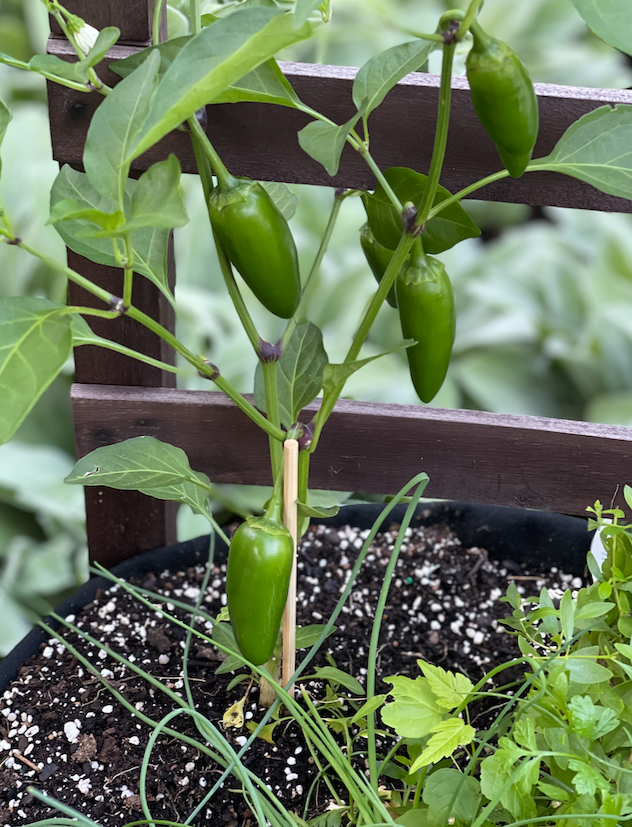Organic Vs. Synthetic Fertilizers: Which Is Best for Supporting Healthy And Balanced Pepper Plants?
In the realm of nurturing healthy pepper plants, the selection between organic and artificial plant foods stands as a crucial choice with significant implications. While both choices aim to supply vital nutrients to support plant development, the subtleties of their effect on the dirt, plant health, and the environment stimulate a debate that mirrors throughout the horticulture area. Recognizing the distinctive benefits and possible challenges of each fertilizer type is critical for pepper cultivators seeking to enhance their returns while keeping a sustainable and eco-conscious strategy.
Benefits of Organic Fertilizers
Organic plant foods offer a sustainable and environmentally-friendly approach to beneficial pepper plants, providing crucial nutrients without using artificial chemicals. These natural fertilizers are originated from natural resources such as garden compost, manure, bone meal, and seaweed, advertising dirt health and biodiversity. Unlike synthetic plant foods, organic alternatives launch nutrients slowly, making certain a balanced and stable supply for pepper plants to thrive.
One significant benefit of organic fertilizers is their capability to enhance dirt structure and water retention. By improving soil health, organic fertilizers promote helpful microbial activity, which helps in nutrient uptake by pepper plants. Additionally, organic fertilizers decrease the threat of chemical run-off, safeguarding water sources from contamination and guarding the atmosphere.
In addition, natural plant foods add to long-lasting dirt fertility by advertising the development of valuable soil microorganisms. These microorganisms help damage down natural matter, launching nutrients in a type that is quickly accessible to pepper plants. best fertilizers for peppers. By promoting a healthy and balanced dirt community, organic plant foods support sustainable pepper cultivation techniques that benefit both plants and the setting
Disadvantages of Artificial Plant Foods
Synthetic fertilizers, in comparison to their organic counterparts, present various disadvantages when utilized to nourish pepper plants, influencing both plant health and wellness and ecological sustainability. One major downside of artificial fertilizers is their tendency to leach nutrients from the soil rapidly. This quick leaching can result in nutrition inequalities in the dirt, triggering plants to suffer from shortages or toxicities. In addition, artificial fertilizers can hurt useful soil microorganisms, such as earthworms and valuable microorganisms, interrupting the dirt ecological community's equilibrium.
In addition, the overuse of artificial fertilizers can add to water air pollution. Excess fertilizers not absorbed by plants can remove into water bodies, leading to eutrophication, where algae blossoms deplete oxygen degrees in the water, hurting aquatic life. In addition, synthetic fertilizers are generally stemmed from non-renewable resources, such as nonrenewable fuel sources, adding to carbon discharges and ecological degradation during their manufacturing.
Nutrient Absorption Contrast
Effective nutrient absorption plays an important duty in the overall wellness and growth of pepper plants. When comparing organic and synthetic plant foods in regards to nutrient absorption, organic fertilizers have the benefit of supplying a much more well balanced and slow-release source of nutrients (best fertilizers for peppers). Organic fertilizers consist of a selection of macro and trace elements that are not only advantageous for the plants yet also advertise healthy and balanced soil microbial activity, which aids in nutrient uptake. On the various other hand, artificial fertilizers typically provide a quick launch of nutrients, which can lead to leaching and runoff, leading to reduced nutrient absorption prices by the plants.
Additionally, natural fertilizers boost soil framework and water retention capacity, permitting pepper plants to gain access to nutrients extra efficiently. This better dirt quality assists in root advancement, enabling much better nutrient absorption. Artificial fertilizers, although initially improving plant growth as a result of their high nutrient focus, may hinder long-lasting nutrient absorption by derogatory soil health and wellness in time.
Ecological Effect Factors To Consider

On the various other hand, synthetic fertilizers, although commonly more promptly available and concentrated to plants, can have destructive effects on the environment otherwise applied correctly (best fertilizers for peppers). Their production calls for high power inputs, causing greenhouse gas discharges and contributing to environment modification. In addition, the runoff of excess artificial This Site fertilizers can pollute water sources, resulting in eutrophication and harming aquatic communities.
Ideal Fertilizer Practices for Peppers
When fertilizing pepper plants, maximizing nutrient uptake and lessening environmental effect are key considerations. To achieve this, it is vital to follow best fertilizer techniques customized to the details requirements of pepper plants. One important technique is to perform a soil test before using any plant foods. This examination can determine the pH level of the dirt and identify any nutrient shortages, guiding you in picking the most suitable plant food formulation.
An additional vital technique is to fertilize pepper plants at the best time. Usually, peppers gain from getting fertilizer at planting and after that again when they start to blossom. Over-fertilizing can lead to nutrition discrepancies and harm the plants, so it is important to follow recommended application rates.
In addition, picking a well balanced fertilizer with an NPK ratio that fits pepper plants' requirements is basic. Inevitably, incorporating artificial and organic plant foods carefully can help support healthy pepper plants while decreasing environmental effect.
Verdict

Organic fertilizers check my blog supply an environmentally-friendly and lasting method to beneficial pepper plants, providing necessary nutrients without the usage of synthetic chemicals. Unlike artificial fertilizers, organic alternatives release nutrients gradually, guaranteeing a well balanced and steady supply for pepper plants to prosper.
Artificial fertilizers, in contrast to their natural counterparts, position numerous drawbacks when made use of to nurture pepper plants, impacting both plant wellness and environmental great site sustainability. When contrasting natural and artificial plant foods in terms of nutrient absorption, organic plant foods have the advantage of offering an extra well balanced and slow-release source of nutrients.In addition, organic fertilizers improve soil structure and water retention capability, permitting pepper plants to accessibility nutrients much more successfully.